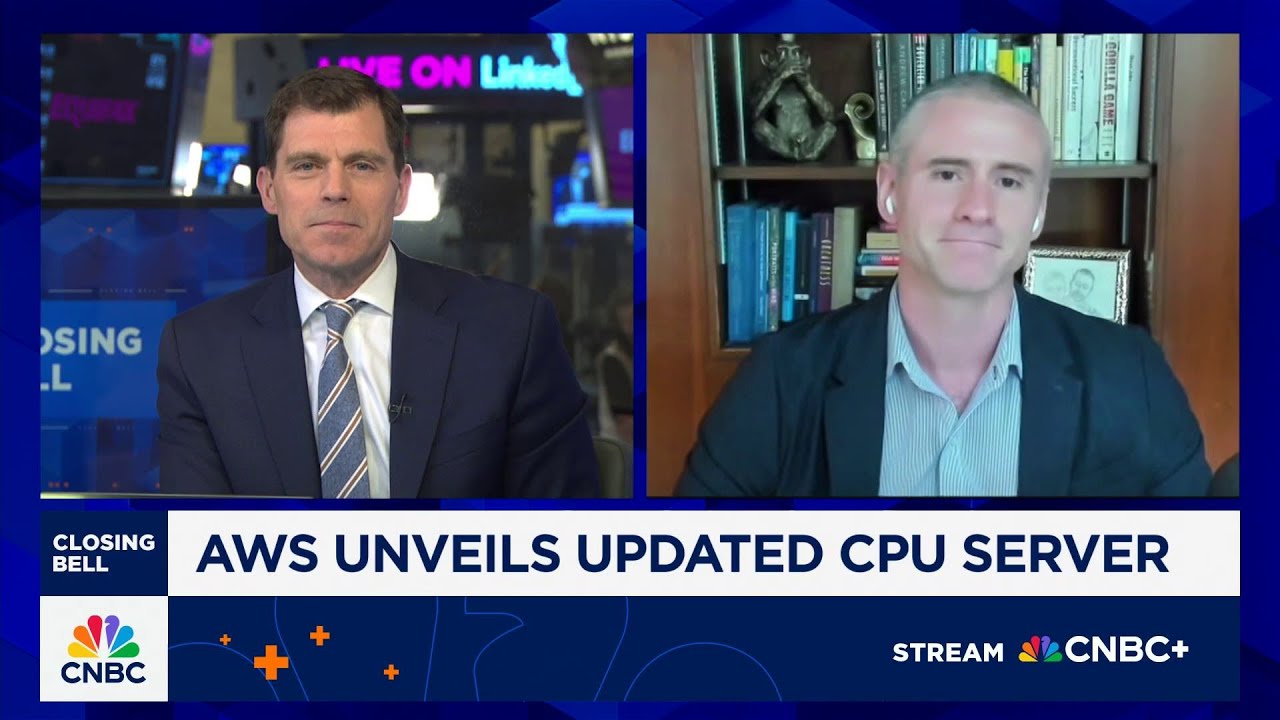Doug Clinton of Intelligent Alpha believes Amazon’s new CPU servers and chips pose little threat to Nvidia’s dominant position in AI infrastructure over the next few years, due to limited market reach and strong competition from established hyperscalers. He highlights investment opportunities in companies like Marvell and upcoming AI-focused IPOs, while noting ongoing but manageable tensions between Microsoft and OpenAI within the evolving AI ecosystem.
In the discussion, Doug Clinton, founder of Intelligent Alpha, addresses the impact of Amazon’s new CPU server on Nvidia. He suggests that Amazon’s new chips, including Graviton2, Trainium, and Inferentia, primarily target AI customers but are unlikely to pose a significant threat to Nvidia in the next two to three years. Clinton points out that major hyperscalers like Google, Microsoft, Meta, and Oracle are unlikely to purchase chips from Amazon, a direct competitor in the cloud space, limiting Amazon’s market reach and thus its ability to challenge Nvidia’s dominance.
Clinton emphasizes that Nvidia remains the clear leader in AI infrastructure, especially following the surge of interest sparked by ChatGPT. While there may be minor competitive pressures at the edges, Nvidia’s position is stable and unlikely to be disrupted soon. He notes that the AI infrastructure story remains straightforward, with Nvidia and a few other large companies continuing to dominate the space, and he does not foresee significant fragmentation or splintering in the near term.
From an investment perspective, Clinton highlights Marvell as a notable public company involved in the AI chip space, particularly since it supplies custom chips to Amazon. There is speculation about Amazon potentially collaborating with other chip companies for GPU development, but Marvell still appears to be a key player. Additionally, Clinton points to the active IPO market, especially in AI-related companies like CoreWeave and Circle, and anticipates that upcoming IPOs, such as Databricks, will offer promising opportunities for investors seeking AI exposure.
Regarding the relationship between Microsoft and OpenAI, Clinton acknowledges ongoing tensions and frictions, particularly around renegotiating deal terms and intellectual property issues. OpenAI reportedly wants Microsoft to convert royalty payments into equity stakes, and there are concerns about competition arising from OpenAI’s acquisition of Windsurf, a company in the coding space that competes with Microsoft’s Copilot. Despite these challenges, Clinton believes that Microsoft and OpenAI remain mutually dependent and are unlikely to sever ties in the near future.
Overall, Clinton’s analysis suggests that while Amazon’s new CPU server and chip initiatives are interesting developments, they do not currently threaten Nvidia’s leadership in AI hardware. The AI infrastructure market remains concentrated among a few dominant players, with investment opportunities emerging both in established companies like Marvell and in new entrants through IPOs. Meanwhile, strategic partnerships in the AI ecosystem, such as that between Microsoft and OpenAI, continue to evolve amid some tensions but remain crucial for the industry’s growth.
